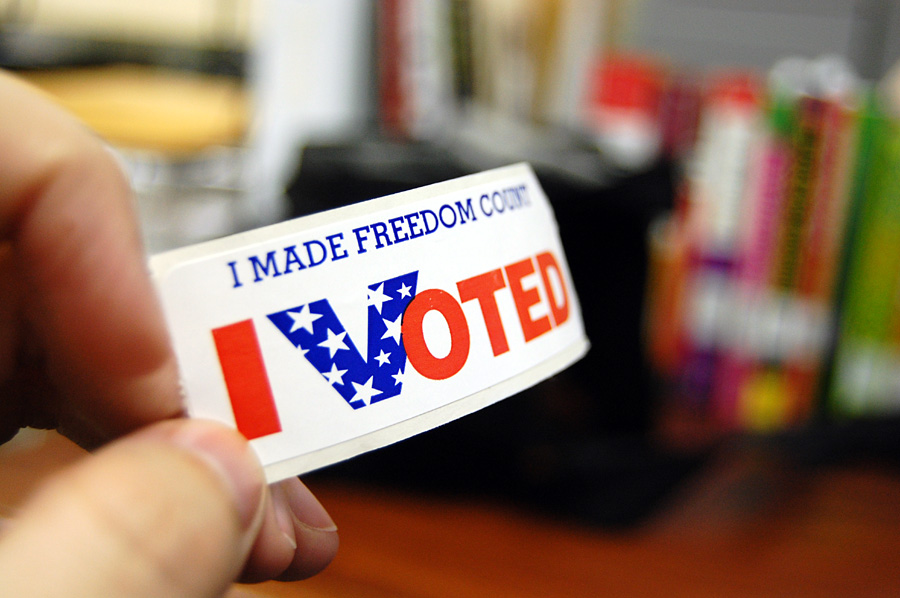Originally published March 2017
As the confirmation hearings for President Trump’s cabinet nominees continue, so does Democratic opposition to his candidates. During the debate on whether to confirm Jeff Sessions as Attorney General on Tuesday, February 7th, Massachusetts Senator Elizabeth Warren attempted to read a letter written in 1986 by Coretta Scott King, wife of civil rights leader Martin Luther King Jr. The letter pertained to Sessions’ nomination for federal judgeship at that time (he was not confirmed) and details how he is unfit for office due to his racially charged decisions as a US Attorney in Alabama.[1] Warren began her speech by quoting a letter written by late Senator Ted Kennedy about Sessions’ inability to hold the same office, which called him a “disgrace to the Justice Department.”[2]
It was the word “disgrace” that Majority Leader Mitch McConnell cited as the reason for invoking Rule XIX of Senate parliamentary procedure in order to silence Warren. Rule XIX states, “No Senator in debate shall, directly or indirectly, by any form of words impute to another Senator or to other Senators any conduct or motive unworthy or unbecoming a Senator.”[3] The rule is largely left to interpretation as to whether it applies to Senators reading another person’s words, but in this case, the Republican majority ruled that Warren’s testimony was not permissible.
The concern among Democrats lies in the opening this incident creates for Republicans to utilize Rule XIX to censor and silence them throughout the coming years. When a ruling such as this one is made, it is made by the Senator of the majority party who is appointed by the Senate pro tempore to preside over the Senate floor on that given day. On February 7th, Steve Daines, a freshman Senator from Montana, was this presiding officer.[4] After McConnell introduced a motion preventing Warren from participating in further debate on Sessions’ confirmation in accordance with Rule XIX, the presiding officer found this motion to be in order and allowed the entire Senate to vote on it. The motion was voted for along party lines, and Warren was silenced.
In 2015, Senator Ted Cruz (R-TX) gave a speech in which he accused McConnell of lying to him and other Senators regarding a private deal McConnell made to pass a transportation bill that included provisions most Republicans opposed.[5] Cruz was accused of grandstanding and was reprimanded by respected Republican Senators such as John McCain (R-AZ) and Orrin Hatch (R-UT), but Rule XIX was not invoked in his case.[6] Many have pointed to this as a prime example of where Republicans could have invoked Rule XIX if they truly craved Senatorial courtesy rather than political gain. This also served to foreshadow a possible future double standard in which the rule could be used by Republicans to selectively silence Senate Democrats in future confirmation hearings and debates.
As Republicans currently control the Senate with a majority of 52-48, they are also able to control how its rules are interpreted and when they are invoked, which could prove to be more dangerous for Democrats than previously thought. In this new Trump era, how can this rule serve to censor Senators who will not only be responsible for monitoring the activities of the White House, but of their peers? If a Republican Senator is truly caught in a scandal in the coming months, which does not seem unlikely in this political climate, will Democrats be prevented from discussing this on the Senate floor for fear of being silenced altogether? These questions will only be answered as time progresses, but it is evident that the vitriol between parties during the 2016 election is not limited to the executive, but has permeated all branches of American government.
Another facet of this incident was the one of accused sexism in the Senate’s ruling against Warren. Shortly after Senator Warren was condemned, two male Senators, Tom Udall and Bernie Sanders, were allowed to finish reading King’s letter without objection.[7] Senator Jeff Merkley, also male, later in the session was also able to quote parts of the letter, but these sections were deemed less inflammatory than the parts that Warren read.[8] This was probably a response to the public outcry to Warren’s redshirting, but it further emphasized the bad optics: only men were permitted to read aloud the words of an influential civil rights activist, who also happened to be a woman.
McConnell’s remarks about the incident became a rallying cry: “She was warned. She was given an explanation. Nevertheless she persisted.” These words came back to haunt the Majority Leader, as Warren’s silencing serves as a symbolic moment for Democrats leading the resistance against Trump. Shirts emblazoned with “Nevertheless she persisted” were created within hours, and many are hoping persistence will become the mantra for Democrats in Congress during the Trump administration. Meanwhile, it is expected that this incident will be a focal point of Warren’s 2018 Senate campaign and possibly a 2020 run for president. Warren’s example of refusing to back down in the face of male admonition has become a symbol of modern day feminism to many women, as many recognize this brand of chastisement.[9] Thousands of copies of King’s letter were mailed to McConnell’s office, and protests were held outside the Capitol during which women took turns reading the letter.[10] The fact that two male Senators were permitted to finish reading the letter after Senator Warren was silenced was the proof she and others needed to expose the double standard in this new Senate and to unexpectedly foreshadow how Rule XIX may be utilized in the future.
[1] Kane, Paul and Ed O’Keefe. “Republicans vote to rebuke Elizabeth Warren, saying she impugned Sessions’s character.” The Washington Post. February 8, 2017.
[2] Kane, Paul and Ed O’Keefe. “Republicans vote to rebuke Elizabeth Warren, saying she impugned Sessions’s character.” The Washington Post. February 8, 2017.
[3]“Rules of the Senate.” Senate Committee on Rules and Administration.
[4] Kane, Paul and Ed O’Keefe. “Republicans vote to rebuke Elizabeth Warren, saying she impugned Sessions’s character.” The Washington Post. February 8, 2017.
[5] Gillin, Joshua. “Senate Republicans did not use Rule 19 when Ted Cruz attacked Mitch McConnell.” Politifact. February 8, 2017.
[6] Gillin, Joshua. “Senate Republicans did not use Rule 19 when Ted Cruz attacked Mitch McConnell.” Politifact. February 8, 2017.
[7] Flegenheimer, Matt. “Shutting Down Speech by Elizabeth Warren, G.O.P. Amplifies Her Message.” The New York Times. February 8, 2017.
[8] Kane, Paul and Ed O’Keefe. “Republicans vote to rebuke Elizabeth Warren, saying she impugned Sessions’s character.” The Washington Post. February 8, 2017.
[9] Chira, Susan. “Elizabeth Warren Was Told to Be Quiet. Women Can Relate.” The New York Times. February 8, 2017.
[10] Hawkins, Derek. “The silencing of Elizabeth Warren and an old Senate rule prompted by a fistfight.” The Washington Post. February 8, 2017.


